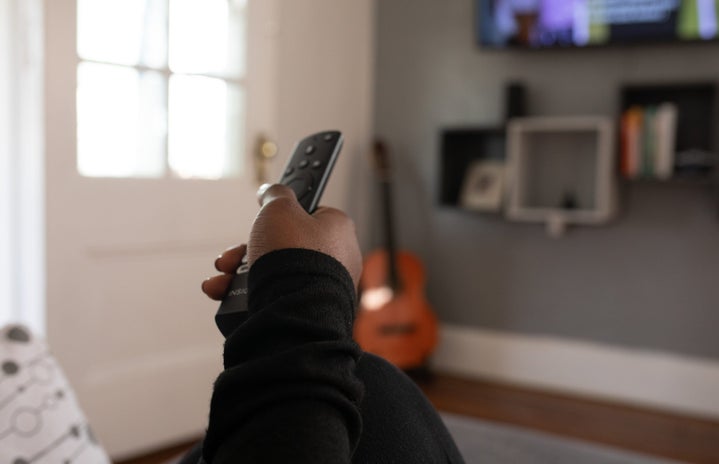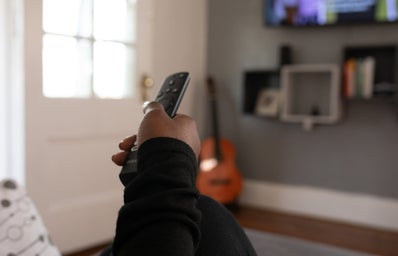The Power of Consumption
The phrase “You are what you eat” has long been used to highlight the connection between diet and physical health, but what if we applied this idea to media consumption? The notion that what we take in shapes who we are extends beyond our physical bodies, to encompass our minds and identities. In our increasingly interconnected world, the content we consume—news, music, movies, social media, or literature—shapes our perceptions, beliefs, and behaviors. Unlike our diet, which we often monitor and regulate as we understand that it affects our well-being, our media consumption habits are seldom scrutinized with the same level of care. Yet, the impact of what we absorb mentally and emotionally can be just as profound, influencing how we see the world and ourselves.
The Role of Media in Shaping Identity
Media is more than just a source of entertainment or information; it is a mirror that reflects and sometimes distorts cultural norms, values, and expectations. From a young age, we are exposed to narratives and representations that shape our understanding of various aspects of life, including gender roles, relationships, success, and morality. These narratives, repeated and reinforced across different media platforms, can subtly mold our attitudes and behaviors, often without conscious awareness.
Consider the portrayal of love and romance in popular movies and books. Many of us grew up consuming stories that present an idealized version of love—passionate, dramatic, and often accompanied by grand gestures. These depictions can create unrealistic expectations and set us up for disappointment when real-life relationships do not measure up to these fictional standards. As a result, people may feel inadequate or unfulfilled when their experiences fall short of these cinematic portrayals.
Similarly, the representation of gender roles in media can shape our perceptions of what it means to be male or female. Stereotypical portrayals of masculinity and femininity can limit our understanding of ourselves and others, reinforcing harmful norms that dictate how we should look, behave, and interact. These portrayals are not static; they evolve with shifting societal and economic conditions. As the financial landscape changes, so too do the roles that men and women are expected to play at home and in the workplace. For example, during times of economic downturn, traditional gender roles may be reinforced as people seek stability and familiarity. Conversely, there is often more room for redefining and expanding these roles in economic growth and social progress periods. Media reflects and influences these shifts, pivotal in challenging or perpetuating outdated stereotypes.
Internalizing Themes and Narratives
We do not simply consume media; we internalize it. The stories we engage with become part of our internal narrative, influencing how we interpret our experiences and the world around us. This process is often subconscious, making it difficult to recognize the extent to which external sources have shaped our beliefs and attitudes.
For example, individuals who have experienced trauma may find themselves drawn to stories of resilience and recovery. This can be a source of inspiration and healing, providing a framework for understanding and overcoming adversity. However, without critical engagement, there is also the risk of internalizing harmful narratives that portray victims as permanently damaged or define their identity solely in terms of their trauma.
Similarly, media portrayals of achievement and failure can influence our perceptions of success and self-worth. Social media, in particular, has a powerful impact on how we measure our lives in comparison to others’. Constant exposure to curated images of success, beauty, and happiness can lead to feelings of inadequacy and low self-esteem. When we compare our everyday struggles to the highlight reels of others, we may develop unrealistic expectations for ourselves and feel we are falling short. This is why engaging critically with the content we consume is crucial, questioning the narratives presented to us and recognizing the curated nature of social media.
The Influence of Genre and Medium
Different media types can influence us in various ways, depending on the format, genre, and context in which they are consumed. For instance, the immersive nature of novels allows for deep engagement with characters and themes, often fostering empathy and a nuanced understanding of human experiences. On the other hand, social media’s rapid, image-driven format can encourage surface-level engagement, leading to snap judgments and reinforcing stereotypes.
Films and television shows, with their powerful combination of visuals, sound, and narrative, can create lasting impressions that shape our attitudes and beliefs. A well-crafted story can make complex social issues accessible and compelling, encouraging viewers to see the world from different perspectives. However, depending on the framing and context of the narrative, the same medium can also perpetuate harmful stereotypes and oversimplify complex issues.
Music, too, plays a significant role in shaping identity, particularly during adolescence. Lyrics and melodies can resonate deeply, reflecting personal experiences and emotions in ways other media may not. However, repetitive exposure to specific themes, such as violence or misogyny, can normalize these behaviors and attitudes, especially when they are not critically examined.
Critical Consumption and Self-Awareness
The goal is not to avoid media altogether or limit oneself to “positive” content but to engage with it critically and thoughtfully. This means being aware of the messages we are absorbing and considering how they align, or do not align, with our own values and experiences. When consuming media, it is helpful to ask questions like: Why does this resonate with me? What assumptions does this narrative make about the world? How does this portrayal reflect or challenge my own beliefs?
Engaging critically with media requires active participants rather than passive consumers. It involves recognizing our own biases and being willing to challenge them. This can be uncomfortable, as it may force us to confront aspects of ourselves that we would rather ignore. However, developing a more nuanced and authentic understanding of ourselves and the world is crucial.
Balancing Entertainment and Self-Reflection
It is essential to balance consuming media for pleasure and engaging with it critically. There is nothing wrong with enjoying a romantic comedy or scrolling through social media for fun, but we should also be mindful of how these activities influence our thoughts and feelings. Being aware of our consumption habits and their impact on our mood and mindset can help us make more intentional choices about the content we engage with.
For example, if you notice that certain types of media consistently leave you feeling anxious or inadequate, it may be worth re-evaluating your engagement with them. Conversely, if specific genres or topics inspire and motivate you, consider incorporating more of this content into your media diet. The key is cultivating diverse media experiences that challenge, inspire, and educate rather than simply reinforcing existing beliefs and biases.
Empowering Your Narrative
Ultimately, the media we consume has the power to shape our identities for better or worse. By becoming more aware of what we take in and how it affects us, we can reclaim control over our own narratives. This does not mean rejecting all media influence but rather approaching it with a critical and reflective mindset. In a world where we are constantly bombarded with information and entertainment, conscious consumption is essential for developing a deeper understanding of ourselves and our place in the world.
The more mindful we are of our media consumption, the more empowered we become to shape our own stories. By actively engaging with content that challenges and inspires us, we can expand our understanding of ourselves and others, ultimately leading to a richer, more fulfilling life.


